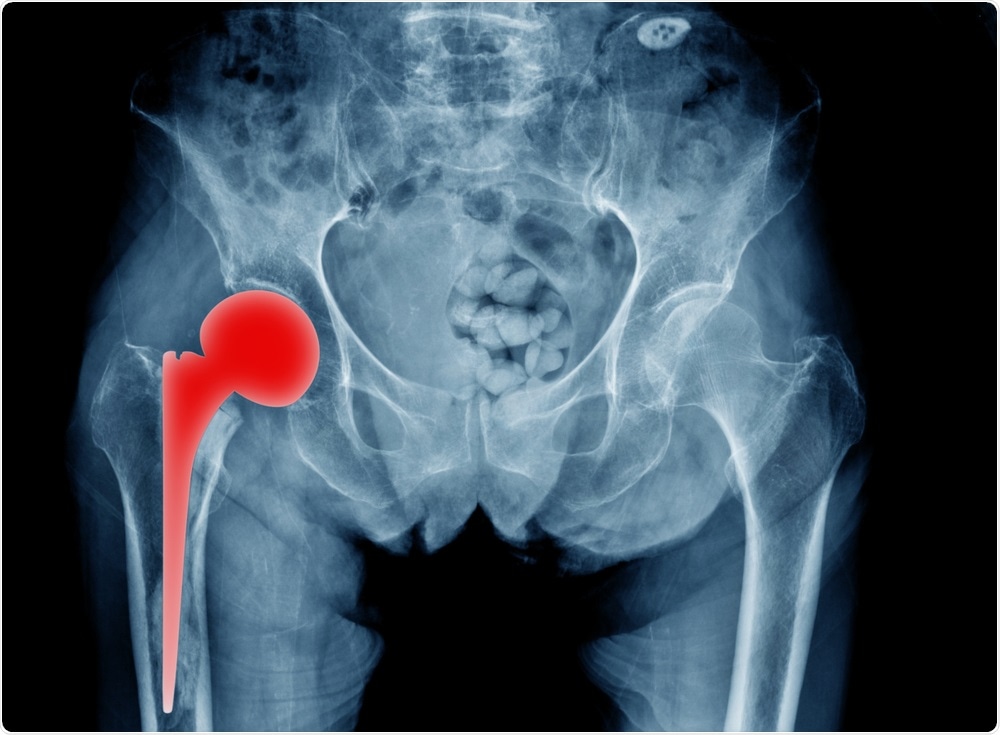How long will a total hip replacement last? A large study on total hip replacement (THR) has shown that six out of ten of these prosthetic devices continue to function well after 25 years. Eight out of ten knee replacements also last that long, according to the same study. In a statement, the researchers said, “This is much longer than believed.”
 Tridsanu Thopet | Shutterstock
Tridsanu Thopet | Shutterstock
THR and knee replacements are major procedures aimed at providing relief from chronic severe pain in the hip and knee joints respectively. At present, most patients undergoing these procedures are between 60 years and 80 years.
Many factors such as infection, fracture or mechanical stresses work together to cause replacement failure after a number of years. This requires revision procedures, which are more likely to fail.
It is important to know how many years of function and freedom from pain should be expected after knee or hip replacement, especially as people are living longer. However, until now, reports on the realistic survival of these devices were lacking.
At best, the NHS has only been able to say how long replacements are designed to last, rather than referring to actual evidence from multiple patients' experiences of joint replacement surgery.”
Jonathan Evans, Lead Author
The current study set out to do just that. It evaluated data from six national joint replacement registries, namely, Australia, Denmark, Finland, New Zealand, Norway, and Sweden, all of which provided more than 15 years of follow-up data after THR.
The UK was not included because of the lack of national-level data for 15 years or more. However, current study results agreed with those of smaller UK studies.
Most male and female patients who underwent THR were, on average, 70 years and 68 years of age, respectively, with an average body mass index (BMI) of about 28.8.
National registry data included over 200 000 THR at 15 years, about 73 000 at 20 years, and over 51 000 at 25 years.
The survival outcomes for total hip replacements were impressive: almost nine out of 10 lasted 15 years, seven out of 10 were in place at 20 years, and almost six out of ten at 25 years.
Additionally, more than 13 000 THR from 44 case series were analyzed in parallel. The survivorship figure in this case was similar at 15 years, but almost eight out of 10 implants survived at 20 years and 25 years, respectively.
A comparison shows that the survival outcomes are similar at 15 years, but thereafter show divergence. Many more THR survived at 20 and 25 years in the case series reports, compared to the national registry data. The authors suggest that this may be due to selection and publication bias, amongst other reasons.
With respect to knee replacements, the survival rates were also very good: for total knee replacement, the function was maintained in 93% cases after 15 years, 90% after 20 years, and 82% after 25 years. For partial knee replacements, the corresponding figures were 77%, 72%, and 70%.
Factors which affect the survival of a THR include age, sex and type of implant. Trends in health service delivery have also changed a lot, as has implant material, structure and design.
Given the improvement in technology and techniques in the last 25 years, we expect that hip or knee replacements put in today may last even longer.”
Jonathan Evans, Lead Author
The study was carried out by a team from the University of Bristol, and published in the Lancet on February 16, 2019.